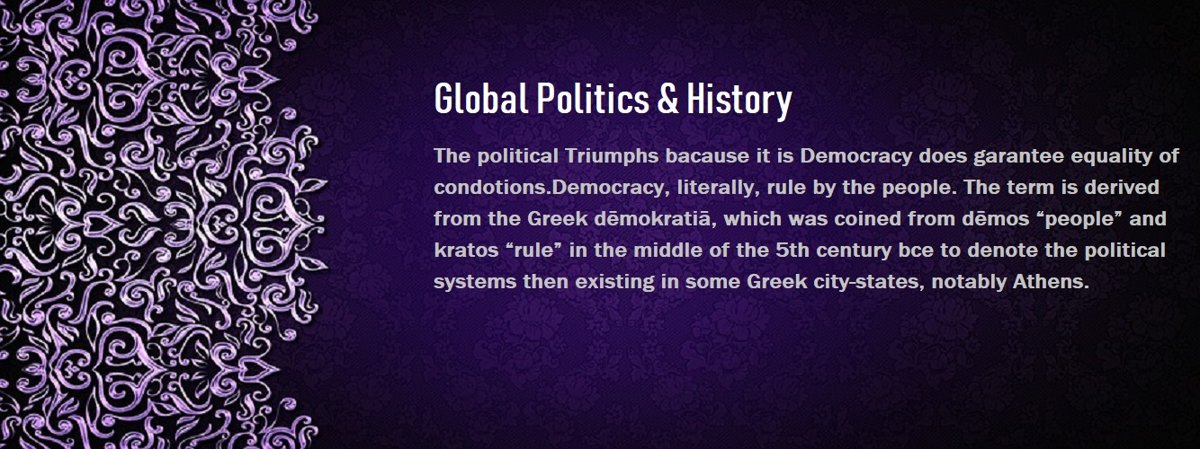BATTLE IN NAME OF" DEMOCRACY ", UNDER TRUMP'S PRESIDENCY, AMERICAN DEMOCRACY IS IN CRISIS,TRUMP IS A TERRIBLE LEADER. TRUMP DOESN'T LEAD AMERICA BY GOOD EXAMPLE TO THE WORLD .TRUMP'S POLICY IS " AMERICANISM ,NOT GLOBALISM".
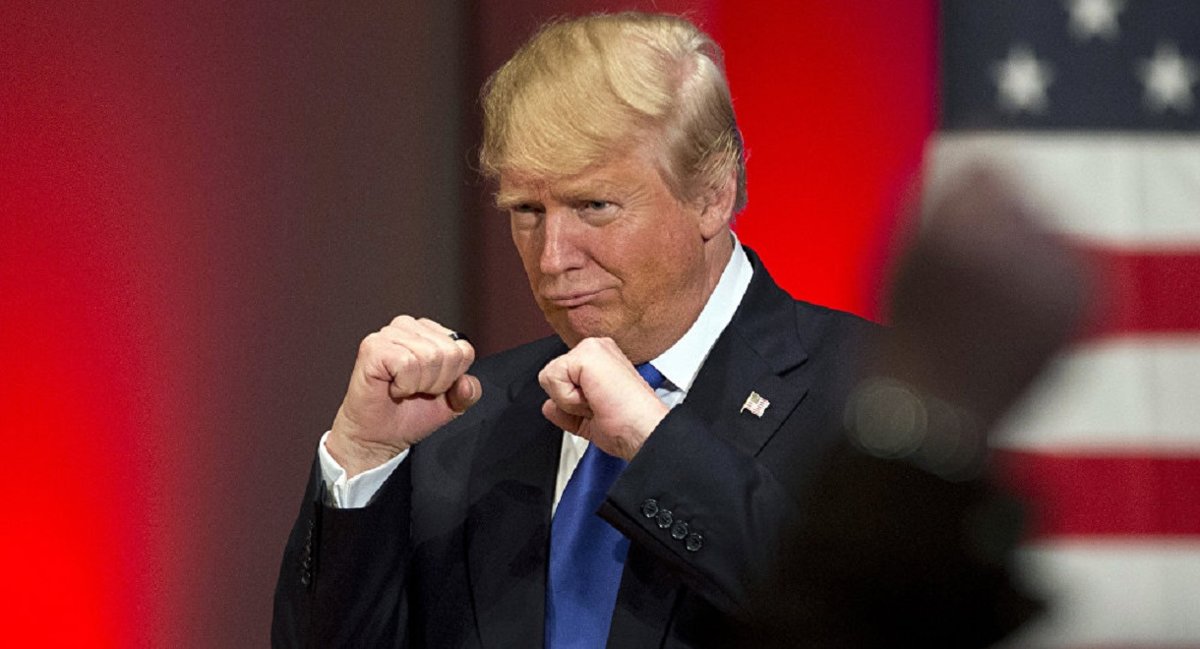 The Trump-era threat to democracy is the opposite of populism.There is a very real threat to liberal democracy in Trump’s America, but it has nothing to do with populism. In fact, populism — an insistence that government authority reflect the will of the people — could be a big part of the solution to the current crisis.
The Trump-era threat to democracy is the opposite of populism.There is a very real threat to liberal democracy in Trump’s America, but it has nothing to do with populism. In fact, populism — an insistence that government authority reflect the will of the people — could be a big part of the solution to the current crisis.
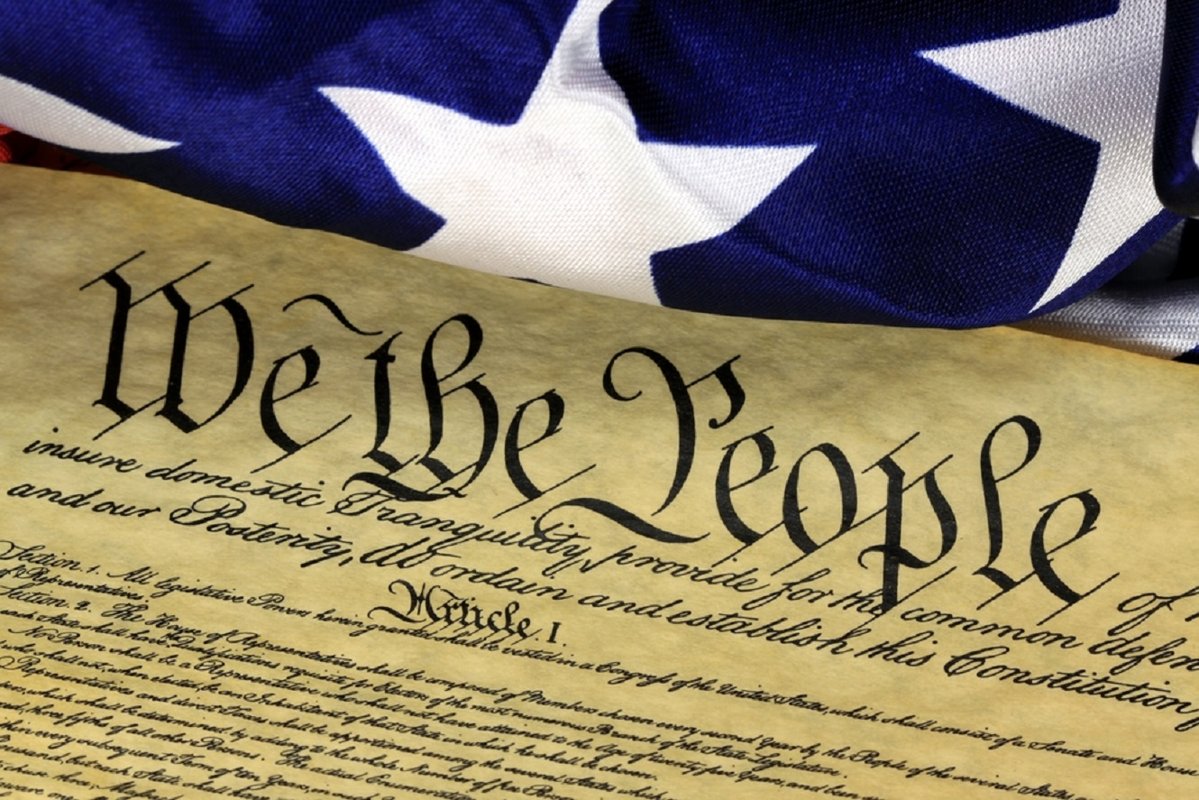 Besides historical examples, they had seen pure democracy in action across the young nation in the state governments established after the Declaration of Independence but prior to the U.S. Constitution:
Besides historical examples, they had seen pure democracy in action across the young nation in the state governments established after the Declaration of Independence but prior to the U.S. Constitution:
The legislatures acted as if they were virtually omnipotent. There were no effective State Constitutions to limit the legislatures because most State governments were operating under mere Acts of their respective legislatures which were mislabeled “Constitutions.” Neither the governors nor the courts of the offending States were able to exercise any substantial and effective restraining influence upon the legislatures in defense of The Individual’s unalienable rights, when violated by legislative infringements.
The United States is on a steep learning curve. Because truth, factuality, and their very public sphere are under attack, democracy is in danger. The attack is devastatingly effective, partly because we have never experienced anything like this and thus are largely unprepared.Trump was never very popular, but he got high marks for his leadership.He’s not going to fix everything. He’s not going to drain the swamp. He’s not going to make America great again. He’s not going to unite all Americans. He’s not going to replace Obamacare with something “terrific.” He’s not going to bring back the manufacturing jobs or the America dream. He won’t make America respected around the world. He won’t make us safer. The issue with Trump is not so much that he himself doesn’t take ownership – since he clearly does. In particular, Trump is an expert at gaslighting a term described by the National Domestic Violence Hotline as “an extremely effective form of emotional abuse that causes a victim to question their own feelings, instincts, and sanity.” (It’s not a coincidence that gaslighting is also a favorite technique of Vladimir Putin.) Gaslighting techniques include questioning the victim’s memory even when the victim remembers the events correctly, changing the subject when challenged, blaming others, and denying and/or pretending to forget what actually occurred. They read, in other words, like the instruction manual for Trump’s Twitter account.Whether it’s being deployed against a person or a population, gaslighting has the same goal as all forms of abuse: to assert power and control. In the mind of Trump, this translates to getting people to pay attention to him. And that’s where we come in. When his 53.4 million Twitter followers obsess over his every word, we’re giving him exactly what he wants.Trump craves attention in part because he’s a narcissistic bully. But it’s also a strategy: The faster he creates new headlines, the less time we’ll have to process and protest what happened the day before. Our shock and outrage leave us paralyzed, and this, in turn, gives him even more control.To be clear, I’m not equating following Trump on Twitter with actually being trapped in a personal abusive relationship. In fact, that’s the point: They’re not the same. In an abusive personal relationship, it can obviously be difficult and dangerous to leave your abuser. But our relationships with Trump are not personal which means we can escape.His America First approach is only hardening, meaning allies will need to think about American power differently.From the end of the Second World War, the dominant current of American exceptionalism in the rhetoric and outlook of US presidents has been the belief that the United States has a special mission to redeem the world by extending liberty and democracy to all peoples. However, President Donald Trump is an exception. He believes that in the post-Cold War era successive administrations in Washington have pursued reckless visions of regional or global hegemony especially in the Middle East leaving the home front to languish and the nation open to ridicule. For Trump, the government must first protect its citizens and promote their prosperity. Despite eschewing this stream of American altruism, Trump wants to “make America great again” by rebuilding its economy and projecting military strength. In his first 18 months in office few policy decisions have exhibited either isolationism or a willingness to countenance American retreat from the world. Still, Trump is no internationalist, and has never expressed support for the institutions of global governance that emerged after 1945. Moreover, his long-standing impatience with alliances and hostility towards free trade and other multilateral approaches to international affairs have now found concrete, if inconsistent, expression in his presidency. Trump’s America First impulses are hardening as he gains greater confidence on the world stage and reshapes his national security team. His stoking of the politics of grievance and resentment will, however, continue to corrode domestic support for a more ambitious US foreign policy, and in future allies will have to think about the nature of American power differently. Look at what happened when Brett Kavanaugh’s nomination for the Supreme Court was nearly derailed by credible accusations of sexual assault. While the confirmation was in doubt, Trump protested that Kavanaugh was “innocent until proven guilty.” He then ordered an extremely limited investigation of the charges that interviewed a small number of witnesses and didn’t even speak with the accuser or the alleged culprit. Ultimately, he falsely declared that Kavanaugh had been “proven innocent” by the whole charade. This false fact Kavanaugh was exonerated now becomes reality to all of his followers.The same exact dynamic is playing out with the apparent murder by Saudi Arabia of journalist Jamal Khashoggi. Trump has applied the “innocent until proven guilty” notion to the Saudi state, even directly comparing the case to Kavanaugh’s. Despite the reported audio evidence of Khashoggi’s brutal dismemberment at the hands of Saudi officials, physical evidence of an attempted cover-up, and the plain fact that Khashoggi entered a Saudi Consulate never to be seen again, Trump is treating the case as a stone-cold whodunit. Don’t be surprised when, in spite of all this evidence, whatever cover story is eventually manufactured for Saudi Crown Prince Mohammed Bin Salman, or any other probable culprits, is ultimately accepted as fact by Trump and then by his followers. Once again, the lie will then become the fact.Steve Bannon explained a broader administration strategy for dispensing with facts. “The real opposition is the media,” he has said. “And the way to deal with them is to flood the zone with shit.” Yale professor Timothy Snyder, in his groundbreaking book The Road to Unfreedom, explains in detail how leaders like Vladimir Putin and Trump undermine factuality by flooding the zone in this way. Putin dominates Russia by propagating grand lies that take the entire society off balance. For example, when Ukrainians protested against Putin’s puppet ruler, Viktor Yanukovych, Putin’s press reported that the protesters were organized by an LGBTQ group attempting a “homodictatorship.” Enough people believe the lie or pretend to believe the lie that a shared reality becomes impossible.
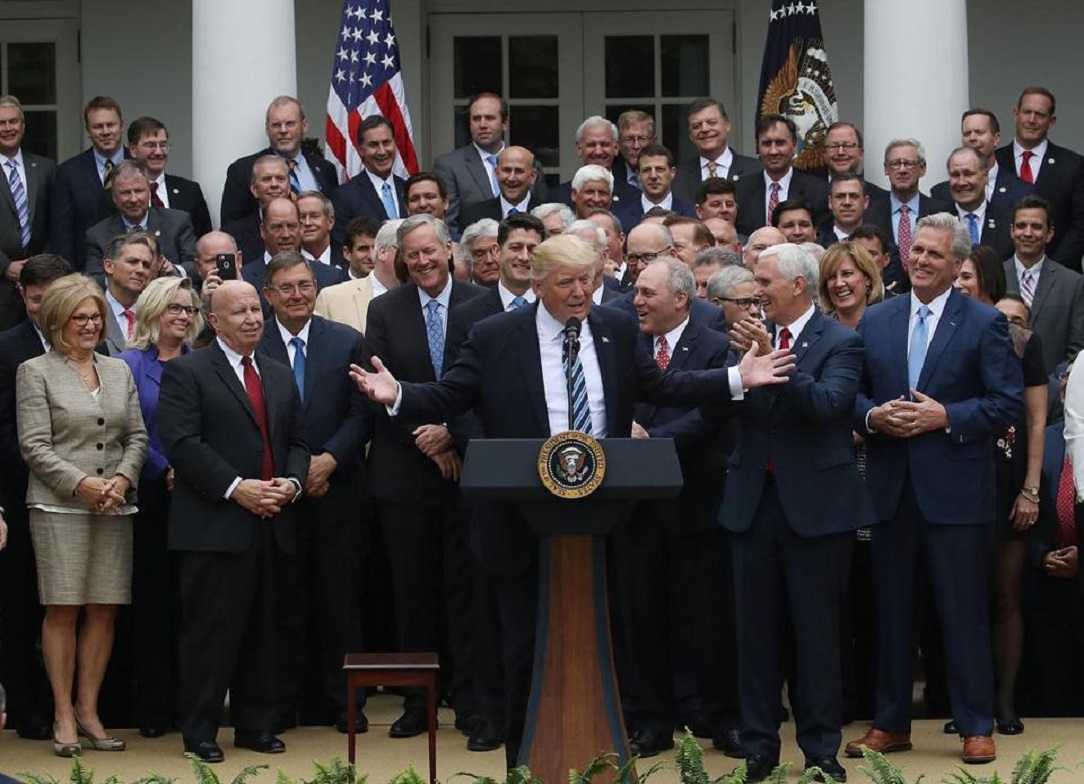 Donald Trump’s War on Democracy.The president’s actions have been much more sinister than just tantrums and Twitter antics.His leadership bona fides were equally laughable, he won in the 2016 presidential election, the guardrails of democracy collapsed. Such metaphors, in fact, make it increasingly difficult to see what Trump and his babysitters are really doing: not just destroying a culture of civility or undoing the accomplishments of the Obama administration but attacking the very pillars of democracy.
Donald Trump’s War on Democracy.The president’s actions have been much more sinister than just tantrums and Twitter antics.His leadership bona fides were equally laughable, he won in the 2016 presidential election, the guardrails of democracy collapsed. Such metaphors, in fact, make it increasingly difficult to see what Trump and his babysitters are really doing: not just destroying a culture of civility or undoing the accomplishments of the Obama administration but attacking the very pillars of democracy.
Since Donald Trump’s election in November 2016 the most common critique of his foreign policy is that it undermines the liberal international order which has been the basis for prosperity and stability across much of the Western world for the past 70 years. Whether it be his scepticism towards the US alliance system in Europe and Asia, his withdrawal from the Iran nuclear deal, the Trans-Pacific Partnership and the Paris climate change accords or his attacks on the United Nations and other multilateral institutions, President Trump is perceived by many as posing a direct threat to the system of global governance established by the United States in the wake of the Second World War.This criticism of Trump often conceals a more serious charge: that by undermining the liberal international order he is actually diluting the power of the American idea itself, the core set of beliefs surrounding its self-image and role in the world. Even worse is the suggestion that he is hastening the relative decline of the United States as a global power. Trump does not use the language of Pax Americana, the long-held idea that the United States is the keeper of global peace. This adds to the prevailing sense of unease among many in America and abroad. In his acceptance speech as the Republican nominee, Trump proclaimed that “Americanism, not globalism, will be our credo”. In the second year of his presidency, that sentiment is hardening. That he regularly attacks the institutions and traditions of American democracy also challenges the very idea that the United States is a model for other societies to follow.Clearly the questioning of American power and purpose predates President Trump. Even before Trump’s election, Americans were undergoing a profound reappraisal of their world role. Speaking in late 2016, former Secretary of State Henry Kissinger said that while the notion of American exceptionalism still exists, “Cold War American exceptionalism is gone” and the idea of the country as the shining city on the hill was weakening. He argued that “an appropriate adaptation is a principal task of the new administration”. In Kissinger’s view, the American public could still be convinced of this higher calling for the US role in the world, but they would require a different explanation from the one that was valid in the 1950s.Many of the leading foreign policy thinkers interviewed by the author agreed: if only the right message and messenger could be found, Americans might rally once more to the cause of an activist foreign policy.To date, Trump appears to reject the notion of a higher calling for the United States in international affairs. His administration’s 2017 National Security Strategy states that “the American way of life cannot be imposed upon others, nor is it the inevitable culmination of progress”. This America First approach has provoked alarm in some quarters. The slogan has been derided as “opting for insularity and smallness” instead of global leadership, and dismissed as “profoundly depressing and vulgar”For others, the America First approach strikes at the core of the American idea. Forces once seen as mutually reinforcing are portrayed by Trump to be inherently antagonistic. Robert Zoellick, a former deputy secretary of state and later World Bank president, has argued that in foreign policy Trump’s “pitting of American nationalism against the country’s internationalism” is driving a stake through the country’s very essence. “Most often”, Zoellick added, “US nationalism and internationalism have been in synchrony … and the mixture created America’s unique global leadership”. Former senior foreign policy adviser to Hillary Clinton, Jake Sullivan, sees the task now as figuring out “how to convince people that principled nationalism and internationalism are not incompatible”. This perceived fracturing of the American ethos is disturbing to an elite nurtured by long-held beliefs in US primacy.While this challenge to the tradition of American exceptionalism predates Donald Trump, he is giving it a new impetus. This Analysis examines briefly the tradition of American exceptionalism since Woodrow Wilson enunciated the country’s special calling during the First World War. Understanding the power of this ideology helps explain the unique nature of President Trump’s outlook, and what it means for US foreign policy.The Analysis then explores how, since assuming the presidency, Trump and his close advisers have sought to bring an understanding of America’s historical international role to his speeches and policies. America First has been anchored in a particular view of the American Revolution and an argument about why (to use the phrase of one of Trump’s most influential advisers) the liberal international order need not be “preserved in amber”. It looks at how the Iraq war has changed the interplay between domestic and foreign policy. Finally, it asks whether the American dream can be revived, especially for the country’s working and middle class, and with it the nation’s exceptionalism. Many believe the United States will, as it has in the past, renew and replenish its national purpose. However, that assumption in itself says much about the deep roots of America’s national identity and self-belief.
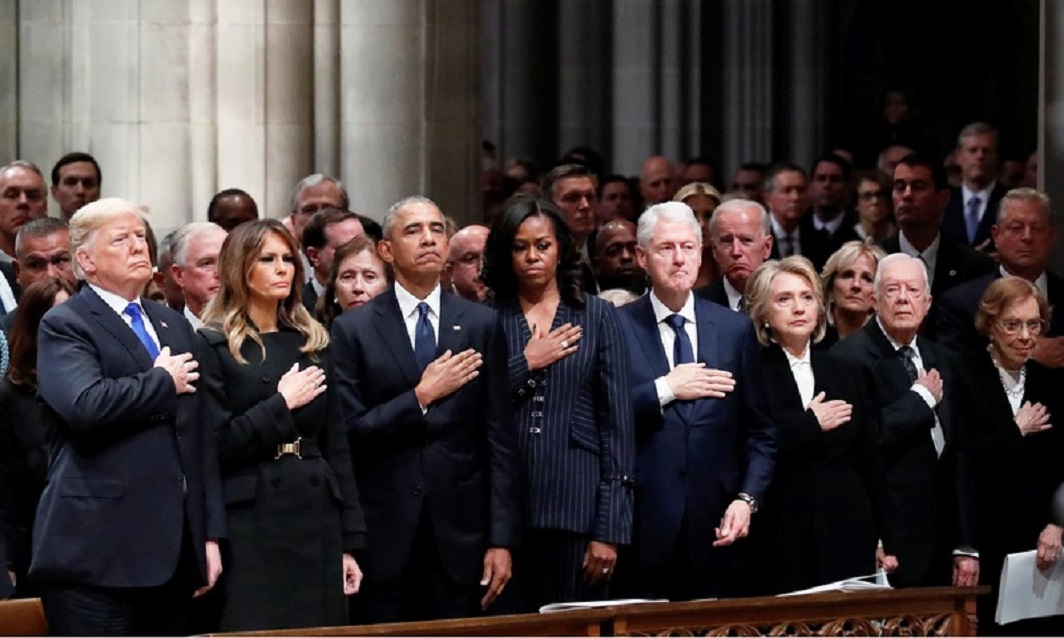 The uncomfortable reunion brought US President Donald Trump together in the same pew with past White House residents who have given him decidedly critical reviews.The late Bush was the de facto chair of the modern incarnation of the president's club, transcending contentious campaigns and party lines to bring together fractious personalities who share that rarified experience. But the staid group of Oval Office occupants has been disturbed since Donald Trump's election. And since his swearing-in, Trump has spurned most contact with his predecessors and they have snubbed him in return.
The uncomfortable reunion brought US President Donald Trump together in the same pew with past White House residents who have given him decidedly critical reviews.The late Bush was the de facto chair of the modern incarnation of the president's club, transcending contentious campaigns and party lines to bring together fractious personalities who share that rarified experience. But the staid group of Oval Office occupants has been disturbed since Donald Trump's election. And since his swearing-in, Trump has spurned most contact with his predecessors and they have snubbed him in return.
